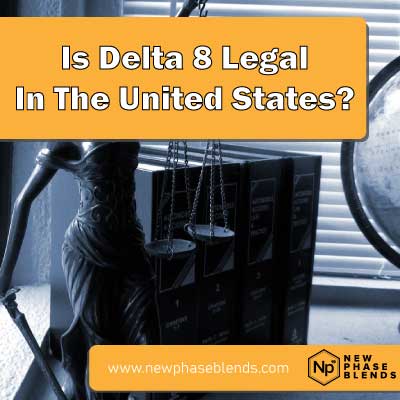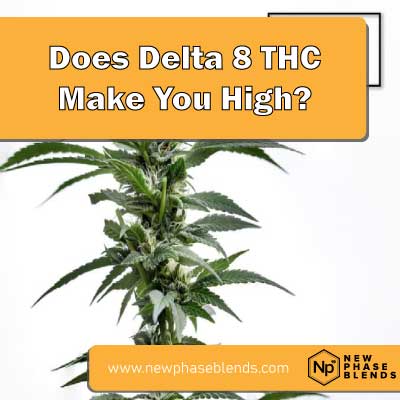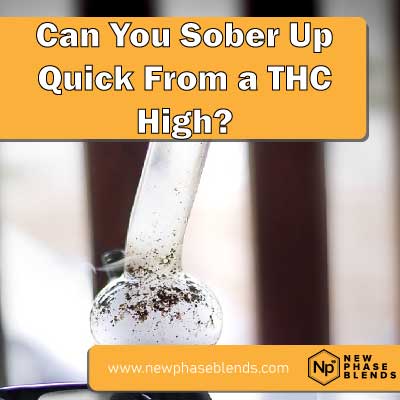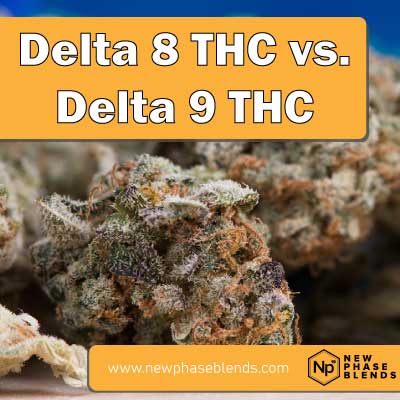The world of cannabis is ever-evolving, with new cannabinoids and products entering the market almost on a monthly basis. One such cannabinoid, Delta-8 THC, has recently garnered significant attention due to its unique properties and legal status – but is Delta 8 legal? This article aims to provide a comprehensive overview of Delta-8 THC’s legality, considering federal, state, and local regulations, as well as potential implications for consumers, businesses, and the cannabis industry as a whole.
What is Delta-8 THC?
Delta-8 THC (delta-8-tetrahydrocannabinol) is a naturally occurring compound found in the cannabis plant, albeit in much lower concentrations than its more well-known cousin, Delta-9 THC.
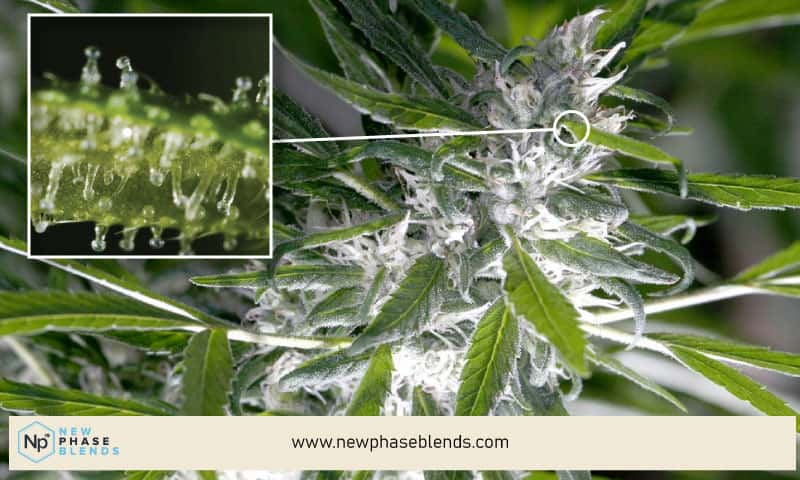
Delta-8 has gained popularity due to its psychoactive effects, which are typically described as milder and more clear-headed than those produced by Delta-9 THC. Moreover, Delta-8 is often touted for its potential therapeutic benefits, such as reducing anxiety, stimulating appetite, and providing relief from pain and inflammation.
Is Delta 8 THC Legal?
The legal status of Delta-8 THC at the federal level is complex and somewhat ambiguous. The 2018 Farm Bill legalized hemp and its derivatives, including CBD (cannabidiol), by removing them from the list of controlled substances, as long as they contain no more than 0.3% Delta-9 THC. However, the Farm Bill did not explicitly address the legality of Delta-8 THC.
The Drug Enforcement Administration (DEA) issued an interim final rule in August 2020, which further complicated matters. The rule stated that all “synthetically derived tetrahydrocannabinols” remain Schedule I controlled substances, irrespective of their Delta-9 THC content. This rule has caused confusion, as Delta-8 THC is often derived from hemp through a process of isomerization, which converts CBD to Delta-8 THC, and some argue that this process constitutes “synthetic” production.
Related: Is CBD Legal in the United States?
In September 2021, the DEA issued a clarification, stating that Delta-8 THC derived from hemp is not considered a controlled substance under federal law. However, this clarification does not necessarily guarantee the legality of Delta-8 THC, as it leaves room for interpretation and enforcement at the state level.
Different States and Their Legal Status on Delta 8
Given the lack of clear federal guidance, the legality of Delta-8 THC varies significantly from state to state. Some states, like Alabama and California, have taken a more permissive approach, allowing Delta-8 THC products to be produced, sold, and consumed under specific regulations. Conversely, other states, such as New York and Colorado, have explicitly banned Delta-8 THC, citing concerns over its psychoactive effects, production methods, and potential risks to public health.
The legal status of Delta-8 THC in other states remains uncertain, as lawmakers and regulators grapple with the implications of this novel cannabinoid. For instance, some states have opted to regulate Delta-8 THC products similarly to medical or recreational cannabis, while others have chosen to treat it as a separate category altogether.
In many cases, state laws regarding Delta-8 THC are continually changing, so it is essential for consumers and businesses to stay up-to-date with the latest information.
Laws Consumers Should Be Aware Of
The varying legal status of Delta-8 THC across the United States can make it challenging for consumers to navigate the market safely and legally. It is crucial for individuals interested in trying Delta-8 THC products to research the specific laws and regulations in their state of residence before making a purchase.
Additionally, consumers should be aware that the quality and safety of Delta-8 THC products can vary significantly. It is essential to purchase products from reputable companies that provide transparent information about their sourcing, production methods, and third-party lab testing.
This information can help ensure that consumers are using products that adhere to state regulations and contain the appropriate levels of cannabinoids, without potentially harmful contaminants or impurities.
Enjoying your reading so far? Sign up to become part of the NPB community and receive a free eBook, 20% off your next order, and access to ton of educational information about cannabinoids like CBD and Delta 8. NPB hosts, arguably, the largest collection of cannabinoid info on the internet. There is no better place to learn than our educational databse.
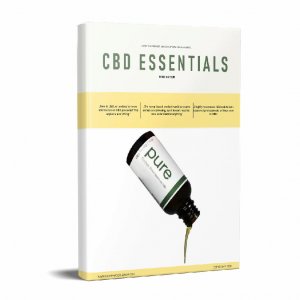
Laws for Stores Selling Delta 8 Products
The complex legal landscape surrounding Delta-8 THC poses challenges for businesses operating in the cannabis industry. Companies producing, distributing, or selling Delta-8 THC products must be vigilant in staying up-to-date with federal, state, and local regulations to ensure compliance and avoid potential legal repercussions.
It is crucial for businesses to invest in proper quality control measures, such as third-party lab testing and transparent sourcing, to build trust with consumers and demonstrate their commitment to providing safe and reliable products.
Additionally, businesses should consider working closely with legal experts and industry organizations to advocate for clear and sensible regulations that promote responsible Delta-8 THC production and consumption.
The Future Legal Landscape of Delta 8 THC
The legal status of Delta-8 THC remains a contentious issue, with ongoing debates at federal, state, and local levels. As more research emerges regarding the potential benefits and risks associated with Delta-8 THC, it is likely that lawmakers and regulators will continue to refine their approach to this novel cannabinoid.
One potential outcome could be the establishment of a comprehensive federal regulatory framework for Delta-8 THC, which would provide much-needed clarity and guidance for consumers and businesses alike. However, such a framework would likely take time to develop and implement, given the complex interplay of stakeholders and interests involved in the cannabis industry.
In the meantime, it is essential for consumers and businesses to stay informed about the evolving legal landscape surrounding Delta-8 THC and to engage in responsible and ethical practices that promote safe and legal access to this unique cannabinoid.
Isomerization of Cannabinoids
Many organizations bypass different laws on cannabinoids by using a process called isomerization. Isomerization can potentially be used to bypass laws for cannabinoids because it allows for the conversion of one type of cannabinoid into another.
For instance, CBD, which is legal in many jurisdictions, can be converted into THC or Delta-8-THC through isomerization. However, it’s important to note that the legality of this process can be complex and varies widely by jurisdiction.
Some regions may have laws that specifically address the isomerization of cannabinoids, while others may not. Therefore, it’s crucial to understand the specific laws in your area before attempting to use isomerization to bypass cannabinoid regulations.
Common Questions About Delta 8 THC
Below, you will find some of the more common questions in regards to Delta 8 THC. Have a question we haven’t covered? Ask us in the comments! We will get back with you.
Is Delta 8 Legal Federally?
While the 2018 Farm Bill legalized hemp and its derivatives, as long as they contain no more than 0.3% Delta-9 THC, it did not explicitly address the legality of Delta-8 THC.
The Drug Enforcement Administration (DEA) issued an interim final rule in August 2020, stating that all “synthetically derived tetrahydrocannabinols” remain Schedule I controlled substances, regardless of their Delta-9 THC content. Since Delta-8 THC is often derived from hemp through a process of isomerization, which converts CBD to Delta-8 THC, there is confusion over whether this process constitutes “synthetic” production.
In September 2021, the DEA issued a clarification stating that Delta-8 THC derived from hemp is not considered a controlled substance under federal law. However, this clarification does not guarantee the legality of Delta-8 THC, as it leaves room for interpretation and enforcement at the state level.
Are Delta 8 Gummies Legal?
The legality of Delta-8 THC gummies depends on the federal, state, and local laws and regulations governing Delta-8 THC in your jurisdiction.
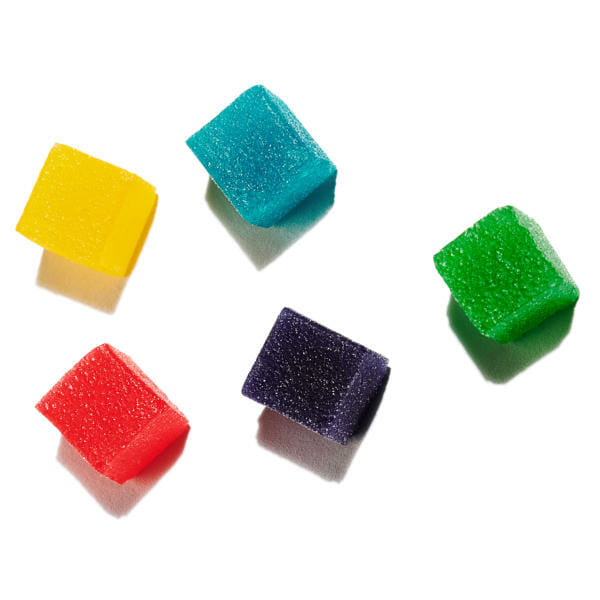
State laws regarding Delta-8 THC vary significantly. Some states allow the production, sale, and consumption of Delta-8 THC products, including gummies, under specific regulations. In contrast, other states have explicitly banned Delta-8 THC or have laws that make its sale and possession illegal.
It is crucial to research the specific laws and regulations in your state to determine the legality of Delta-8 THC gummies.
Did the Farm Bill Legalize Delta 8 THC?
The 2018 Farm Bill did not specifically address or legalize Delta-8 THC.
However, by legalizing hemp production and removing it from the list of controlled substances, the Farm Bill indirectly influenced the status of Delta-8 THC. Delta-8 THC is a minor cannabinoid that can be derived from hemp, and because the bill legalized hemp and hemp-derived products containing less than 0.3% Delta-9 THC, some argue that Delta-8 THC derived from hemp is legal.
Is Delta 8 Natural or Synthetic?
Delta-8 THC can be both natural and synthetic, depending on its source and method of production.
Delta-8 THC is a naturally occurring cannabinoid found in the cannabis plant, but typically in very low concentrations. In this context, Delta-8 THC can be considered natural. However, due to its low natural abundance, it is often impractical to extract significant quantities of Delta-8 THC directly from the plant.
To overcome this limitation, many producers use a process called isomerization to convert more abundant cannabinoids, such as CBD, into Delta-8 THC. In this process, the molecular structure of CBD is altered to resemble that of Delta-8 THC, effectively creating a synthetic form of the compound. While the resulting Delta-8 THC is chemically identical to its naturally occurring counterpart, it is derived through a synthetic process.
Will Delta 8 Show Up in a Drug Test?
Delta-8 THC can potentially show up on a drug test, especially if the test is designed to detect THC or its metabolites. Most standard drug tests, including workplace drug screenings and urine tests, are designed to detect the presence of Delta-9 THC and its primary metabolite, THC-COOH.
Since Delta-8 THC and Delta-9 THC are chemically similar, it is possible that these tests may also detect Delta-8 THC or its metabolites, leading to a positive result.
It is important to note that the sensitivity of drug tests can vary, and some tests may be more likely to detect Delta-8 THC than others. Additionally, factors such as the amount and frequency of Delta-8 THC use, the user’s metabolism, and the specific testing method can all influence the likelihood of a positive result.
Summary – Is Delta 8 Legal?
The legality of Delta-8 THC is a complex and ever-changing issue, with significant variation in federal, state, and local regulations. For consumers, it is crucial to understand the specific laws in their jurisdiction and to exercise caution when purchasing and using Delta-8 THC products. Businesses in the cannabis industry must navigate this complex legal landscape carefully to ensure compliance and protect their interests.
As the conversation surrounding Delta-8 THC continues to evolve, it is vital for all parties involved to stay informed, advocate for sensible regulations, and prioritize the responsible production and consumption of this unique cannabinoid. Ultimately, the future of Delta-8 THC’s legality will depend on the collective efforts of researchers, lawmakers, industry leaders, and consumers to create a balanced and sustainable approach that supports public health and safety while fostering innovation in the rapidly expanding world of cannabis.



